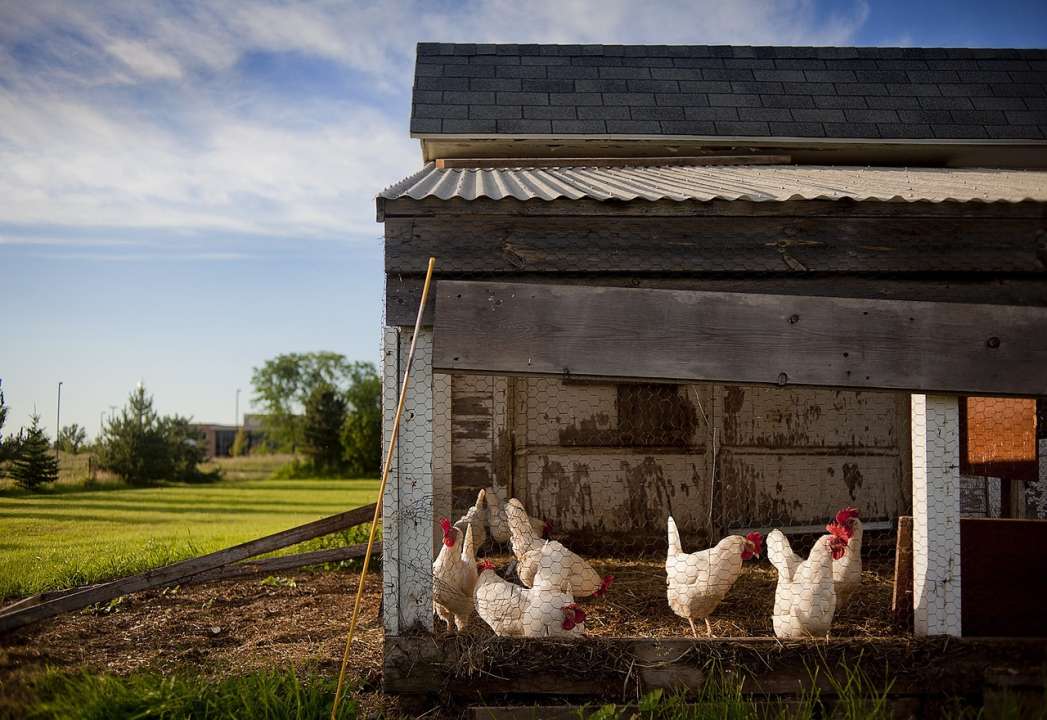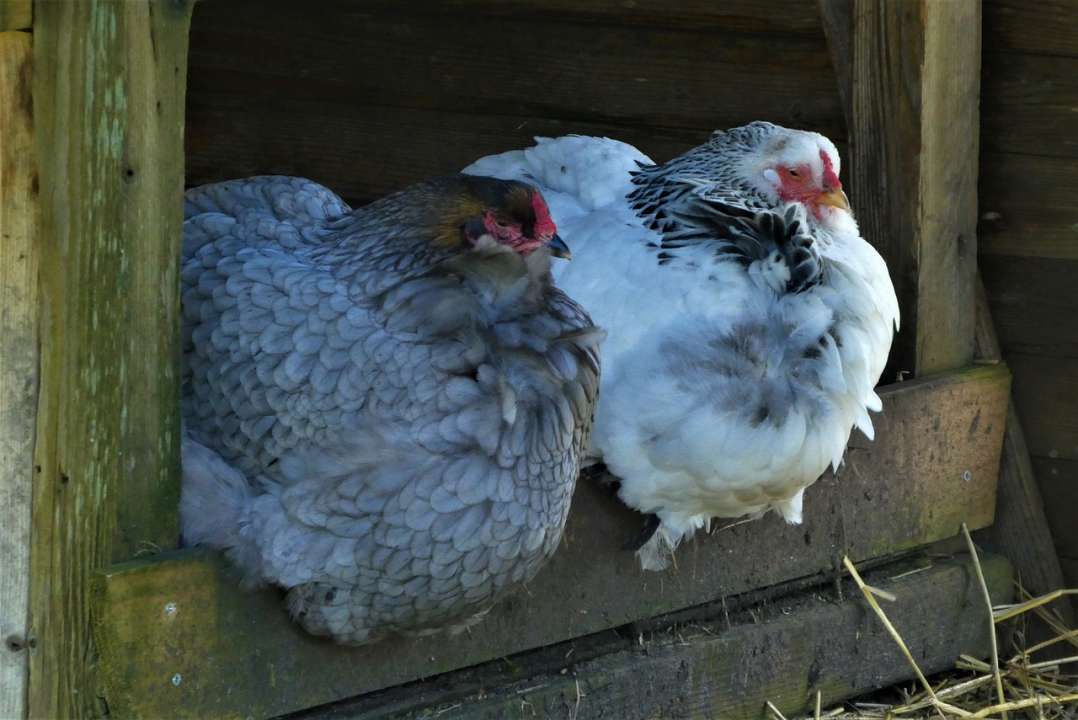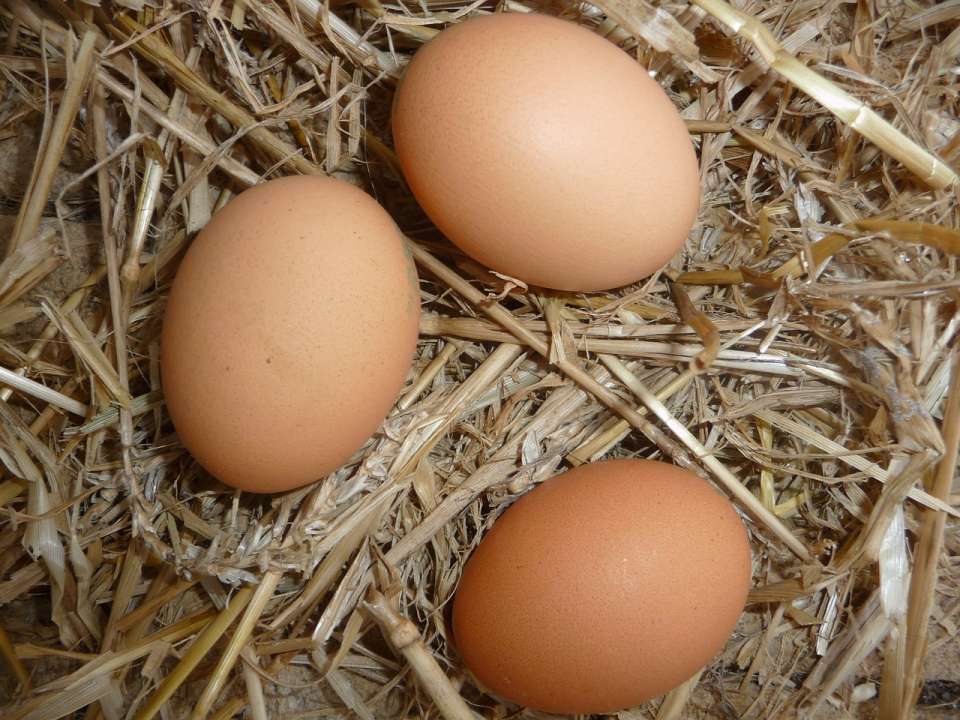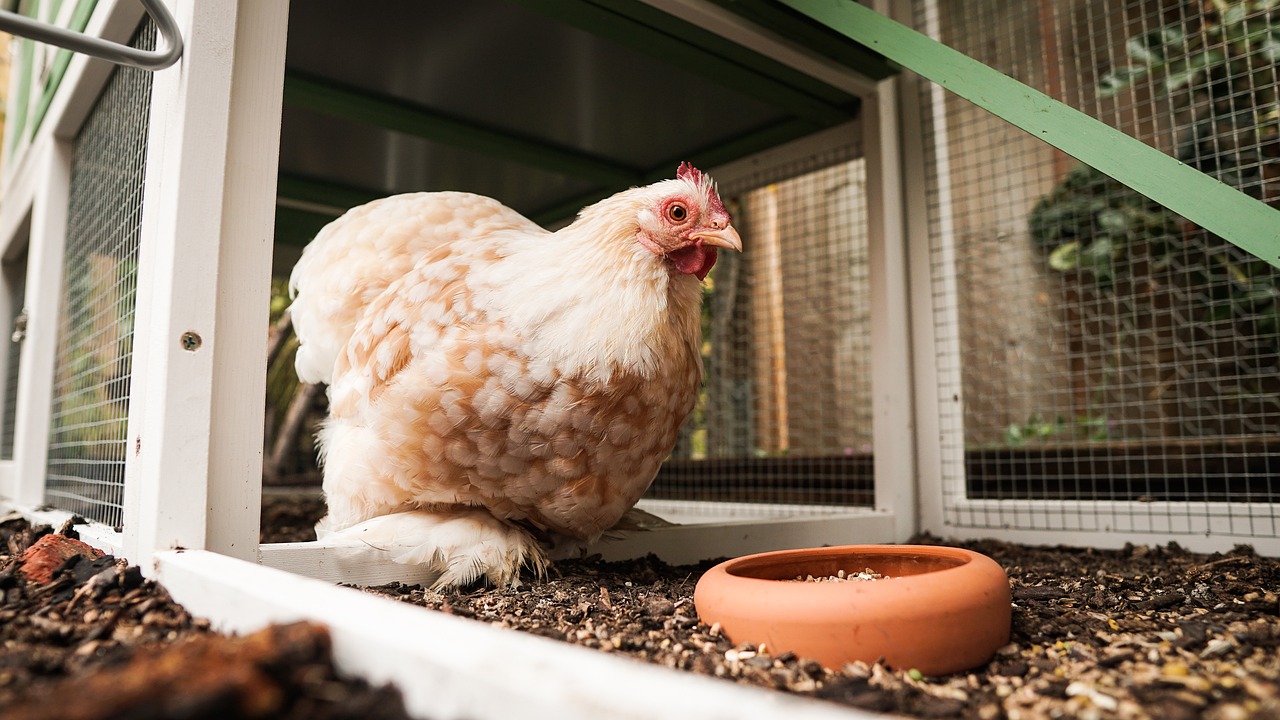Preparing Your Chickens for Winter
If you have chickens, there are several things you can do to prepare for the colder weather and shorter days that winter brings. With attention to a few details, your hens will keep laying through much of the winter, although egg production might slow down a bit.
Keep your layers in the best health, happy, warm and encourage them to lay right through winter with these tips:
- You will need to provide a dry, draft-free shelter for your chickens for protection all year. In extremely cold climates, you may need to provide a safe heat source.
- Your chickens are cold if they fluff their feathers and stand on one foot. They’re trying to stay warm.
- Chickens lay best when the air temperature is above 13°C (55° F). In temperatures colder than that, their egg production will decline.

Chicken Coop
Many factors affect how well your chicken coop retains heat and how well your flock stays warm. If you live in an extremely cold climate rest easy knowing that they are comfortable and warm.
- A tightly built coop will be less drafty, but may be more subject to moisture build up. Chickens put off a lot of moisture, and it’s important to have enough exchange of fresh air to keep this moisture from building up.
- Provide adequate ventilation.
- Wind cools your coop in cold weather and can also make it drafty. If necessary provide a wind break.
- Cloudy days keep the sun from warming your chickens and the coop.
- A small flock of chickens produce much less collective body heat than a larger flock.
- Check on your chickens regularly to see how they are responding to the cold weather.
- Chickens like to roost at night. This is their way to stay warm: with feathers fluffed, they share body heat by roosting close to each other.

Keeping your Chickens Water from Freezing
Depending on how cold it gets where you live, you might need to keep your chickens water supply from freezing. Heated bases that fit underneath the typical galvanized metal chicken waterers or heated chicken waterers are available at Buckerfield’s. Always have fresh clean water available for your chickens, turkeys and other poultry.
Here are a few solutions:
- Store the waterers in a heated area overnight then bring them back out to the chicken coop or chicken pen each morning.
- Keep two sets of waterers, so that they can be rotated.
- Keep the waterer inside the coop. Your coop may stay warm enough to keep the water from freezing.
- Heated poultry waterers are a good option if you have access to electricity near your coop.
- A heated waterer base can be used with any galvanized poultry water. These bases should not be used with plastic waterers.
- Be careful with any heating device and follow manufacturers’ directions. Use CSA approved base heaters or heated waters.

Eggs
- To prevent your chicken eggs from freezing you may have to gather them several times a day.
- Egg production will decline because days are shorter, and there are fewer daylight hours.

Feed
- It is important to make sure that they have enough food available throughout the day. In cold weather, chickens may consume more food.
- Supplement their layer feed with some grain, high in carbohydrates.
Lighting
To keep your chickens laying through the shorter winter days, you will need to add artificial lighting, to give them a total of 14-16 hours of daylight.
- A hen’s laying is influenced by her pineal gland, which in turn is controlled by daylight.
- 60-watt incandescent light bulb is ideal for keeping birds laying eggs.
- Use a timer so that the light automatically comes on and shuts off, to give the correct number of hours of light needed.
Safety
- Heat bulbs put off considerable heat and must have sufficient clearance from combustible materials. Light bulbs too!
- Use extension cords that are in good condition and rated for outdoor use.
- Use only CSA approved base heaters or heated waterers.
- Follow manufacturers’ directions.
Have more questions? Visit your local Buckerfield's and we'll be happy to help!



